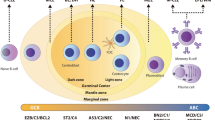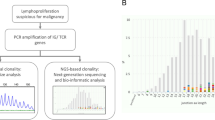Abstract
Numerous technical and functional advances in next-generation sequencing (NGS) have led to the adoption of this technique in conventional clinical practice. Recently, large-scale genomic research and NGS technological innovation have revealed many more details of somatic and germline mutations in solid tumors. This development is allowing for the classification of tumor type sub-categories based on genetic alterations in solid tumors, and based on this information, new drugs and targeted therapies are being administered to patients. This has largely been facilitated by gene panel testing, which allows for a better understanding of the genetic basis for an individual’s response to therapy. NGS-based comprehensive gene panel testing is a clinically useful approach to investigate genomic mechanisms, including therapy-related signaling pathways, microsatellite instability, hypermutated phenotypes, and tumor mutation burden. In this review, we describe the concept of precision medicine in solid tumors using NGS-based comprehensive gene panel testing, as well as the importance of quality control of tissue sample handling in routine NGS-based genomic testing, and we discuss issues for the future adoption of this technique in Japan.

Similar content being viewed by others
References
Reuter JA, Spacek DV, Snyder MP (2015) High-throughput sequencing technologies. Mol Cell 58:586–597
Gerlinger M, Rowan AJ, Horswell S et al (2012) Intratumor heterogeneity and branched evolution revealed by multiregion sequencing. N Engl J Med 366:883–892
Shyr D, Liu Q (2013) Next generation sequencing in cancer research and clinical application. Biol Proced Online 15:4
Akbani R, Ng PK, Werner HM et al (2014) A pan-cancer proteomic perspective on The Cancer Genome Atlas. Nat Commun 5:3887
Robson ME, Bradbury AR, Arun B et al (2015) American Society of Clinical Oncology Policy Statement Update: Genetic and Genomic Testing for Cancer Susceptibility. J Clin Oncol 33:3660–3667
Stanislaw C, Xue Y, Wilcox WR (2016) Genetic evaluation and testing for hereditary forms of cancer in the era of next-generation sequencing. Cancer Biol Med 13:55–67
Pleasance ED, Cheetham RK, Stephens PJ et al (2010) A comprehensive catalogue of somatic mutations from a human cancer genome. Nature 463:191–196
Weinstein JN, Collisson EA, Mills GB et al (2013) The Cancer Genome Atlas Pan-Cancer analysis project. Nat Genet 45:1113–1120
Futreal PA, Coin L, Marshall M et al (2004) A census of human cancer genes. Nat Rev Cancer 4:177–183
Forbes SA, Beare D, Gunasekaran P et al (2015) COSMIC: exploring the world’s knowledge of somatic mutations in human cancer. Nucleic Acids Res 43:D805–D811
Vogelstein B, Papadopoulos N, Velculescu VE et al (2013) Cancer genome landscapes. Science 339:1546–1558
Stratton MR, Campbell PJ, Futreal PA (2009) The cancer genome. Nature 458:719–724
Ellis MJ, Perou CM (2013) The genomic landscape of breast cancer as a therapeutic roadmap. Cancer Discov 3:27–34
Clinical Lung Cancer Genome Project (CLCGP); Network Genomic Medicine (NGM) (2013) A genomics-based classification of human lung tumors. Sci Transl Med 5:209ra153
Wu K, Huang RS, House L et al (2013) Next-generation sequencing for lung cancer. Future Oncol 9:1323–1336
Lianos GD, Mangano A, Cho WC et al (2015) From standard to new genome-based therapy of gastric cancer. Expert Rev Gastroenterol Hepatol 9:1023–1026
Nagahashi M, Shimada Y, Ichikawa H et al (2018) Next generation sequencing-based gene panel tests for the management of solid tumor. Cancer Sci. https://doi.org/10.1111/cas.13837
Varmus H (2003) Genomic empowerment: the importance of public databases. Nat Genet 35(Suppl 1):3
Varmus H, Stillman B (2005) Support for the Human Cancer Genome Project. Science 310:1615
Wheeler DA, Wang L (2013) From human genome to cancer genome: the first decade. Genome Res 23:1054–1062
Endrullat C, Glokler J, Franke P et al (2016) Standardization and quality management in next-generation sequencing. Appl Transl Genom 10:2–9
Nagahashi M, Shimada Y, Ichikawa H et al (2017) Formalin-fixed paraffin-embedded sample conditions for deep next generation sequencing. J Surg Res 220:125–132
Arreaza G, Qiu P, Pang L et al (2016) Pre-analytical considerations for successful next-generation Sequencing (NGS): challenges and opportunities for formalin-fixed and paraffin-embedded tumor tissue (FFPE) samples. Int J Mol Sci 17(9):1579
Stephens PJ, Greenman CD, Fu B et al (2011) Massive genomic rearrangement acquired in a single catastrophic event during cancer development. Cell 144:27–40
Baca SC, Prandi D, Lawrence MS et al (2013) Punctuated evolution of prostate cancer genomes. Cell 153:666–677
Kandoth C, McLellan MD, Vandin F et al (2013) Mutational landscape and significance across 12 major cancer types. Nature 502:333–339
Le Tourneau C, Delord JP, Goncalves A et al (2015) Molecularly targeted therapy based on tumour molecular profiling versus conventional therapy for advanced cancer (SHIVA): a multicentre, open-label, proof-of-concept, randomised, controlled phase 2 trial. Lancet Oncol 16:1324–1334
Xue Y, Ankala A, Wilcox WR et al (2015) Solving the molecular diagnostic testing conundrum for Mendelian disorders in the era of next-generation sequencing: single-gene, gene panel, or exome/genome sequencing. Genet Med 17:444–451
Horak P, Fröhling S, Glimm H (2016) Integrating next-generation sequencing into clinical oncology: strategies, promises and pitfalls. ESMO Open 1(5):e000094
Garraway LA, Lander ES (2013) Lessons from the cancer genome. Cell 153:17–37
Hodi FS, O’Day SJ, McDermott DF et al (2010) Improved survival with ipilimumab in patients with metastatic melanoma. N Engl J Med 363:711–723
Brahmer J, Reckamp KL, Baas P et al (2015) Nivolumab versus docetaxel in advanced squamous-cell non-small-cell lung cancer. N Engl J Med 373:123–135
Yuza K, Nagahashi M, Watanabe S et al (2017) Hypermutation and microsatellite instability in gastrointestinal cancers. Oncotarget 8:112103–112115
Cancer Genome Atlas Network (2012) Comprehensive molecular characterization of human colon and rectal cancer. Nature 487:330–337
Nagahashi M, Wakai T, Shimada Y et al (2016) Genomic landscape of colorectal cancer in Japan: clinical implications of comprehensive genomic sequencing for precision medicine. Genome Med 8:136
Mensenkamp AR, Vogelaar IP, van Zelst-Stams WA et al (2014) Somatic mutations in MLH1 and MSH2 are a frequent cause of mismatch-repair deficiency in Lynch syndrome-like tumors. Gastroenterology 146:643–646.e648
Kautto EA, Bonneville R, Miya J et al (2017) Performance evaluation for rapid detection of pan-cancer microsatellite instability with MANTIS. Oncotarget 8:7452–7463
Hause RJ, Pritchard CC, Shendure J et al (2016) Classification and characterization of microsatellite instability across 18 cancer types. Nat Med 22:1342–1350
Ichikawa H, Nagahashi M, Shimada Y et al (2017) Actionable gene-based classification toward precision medicine in gastric cancer. Genome Med 9:93
Hoelder S, Clarke PA, Workman P (2012) Discovery of small molecule cancer drugs: successes, challenges and opportunities. Mol Oncol 6:155–176
Ledford H (2010) Big science: the cancer genome challenge. Nature 464:972–974
Chang F, Li MM (2013) Clinical application of amplicon-based next-generation sequencing in cancer. Cancer Genet 206:413–419
Van Allen EM, Wagle N, Levy MA (2013) Clinical analysis and interpretation of cancer genome data. J Clin Oncol 31:1825–1833
Hampel H, Bennett RL, Buchanan A, Pearlman R et al (2015) A practice guideline from the American College of Medical Genetics and Genomics and the National Society of Genetic Counselors: referral indications for cancer predisposition assessment. Genet Med 17:70–87
Desmedt C, Voet T, Sotiriou C et al (2012) Next-generation sequencing in breast cancer: first take home messages. Curr Opin Oncol 24:597–604
LeBlanc VG, Marra MA (2015) Next-generation sequencing approaches in cancer: where have they brought us and where will they take us? Cancers (Basel) 7:1925–1958
Giuliano AE, Connolly JL, Edge SB et al (2017) Breast cancer-major changes in the American Joint Committee on Cancer eighth edition cancer staging manual. CA Cancer J Clin 67:290–303
Buchtel KM, Vogel Postula KJ, Weiss S et al (2018) FDA approval of PARP inhibitors and the impact on genetic counseling and genetic testing practices. J Genet Couns 27:131–139
Imai S, Ichikawa T, Sugiyama C et al (2018) Contribution of Human Liver and Intestinal Carboxylesterases to the Hydrolysis of Selexipag In Vitro. J Pharm Sci. https://doi.org/10.1016/j.xphs.2018.09.022
Moreira RB, Alessandretti MB, Abrahao CM et al (2015) Next-generation sequencing (NGS) in metastatic gastrointestinal cancer (mGIC) patients: translation from sequence data into clinical practice. J Clin Oncol 33:72–72
Lerner-Ellis J, Khalouei S, Sopik V (2015) Genetic risk assessment and prevention: the role of genetic testing panels in breast cancer. Expert Rev Anticancer Ther 15:1315–1326
Hyman DM, Piha-Paul SA, Won H et al (2018) HER kinase inhibition in patients with HER2- and HER3-mutant cancers. Nature 554:189–194
Lowes LE, Bratman SV, Dittamore R et al (2016) Circulating Tumor Cells (CTC) and Cell-Free DNA (cfDNA) Workshop 2016: Scientific Opportunities and Logistics for Cancer Clinical Trial Incorporation. Int J Mol Sci. https://doi.org/10.3390/ijms17091505
Shimomura A, Shiino S, Kawauchi J et al (2016) Novel combination of serum microRNA for detecting breast cancer in the early stage. Cancer Sci 107:326–334
Author information
Authors and Affiliations
Corresponding author
Ethics declarations
Conflict of interest
Toshifumi Wakai received remuneration from Denka Company Limited and received research funding from Denka Company Limited, Eisai Co., Ltd.; Taisho Toyama Pharmaceutical Co., Ltd.; Taiho Pharmaceutical Co., Ltd.; Sumitomo Dainippon Pharma Co., Ltd.; Takeda Pharmaceutical Co., Ltd.; Chugai Pharmaceutical Co., Ltd.; Eli Lilly Japan K.K.; and Yakult Honsha Co., Ltd. Pankaj Prasoon, Yuki Hirose, Yoshifumi Shimada, Hiroshi Ichikawa, and Masayuki Nagahashi have no conflict of interest to disclose.
About this article
Cite this article
Wakai, T., Prasoon, P., Hirose, Y. et al. Next-generation sequencing-based clinical sequencing: toward precision medicine in solid tumors. Int J Clin Oncol 24, 115–122 (2019). https://doi.org/10.1007/s10147-018-1375-3
Received:
Accepted:
Published:
Issue Date:
DOI: https://doi.org/10.1007/s10147-018-1375-3




